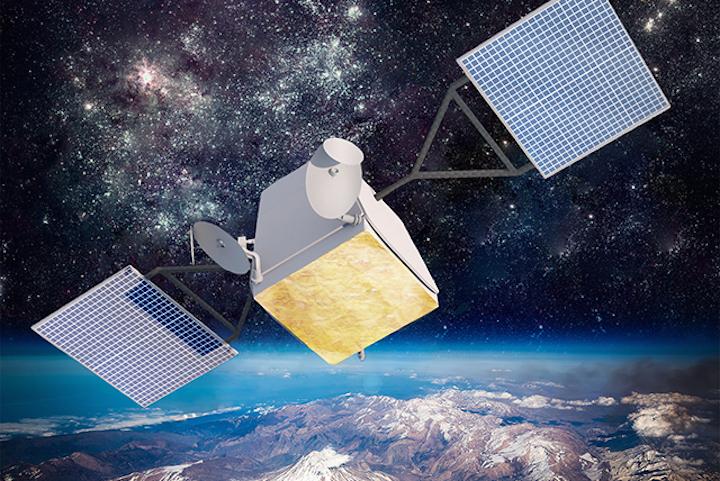
Using satellites can provide another solution that can reach virtually any area without the need for expensive terrestrial physical infrastructure, but the usual satellites are so far up that latency becomes an issue. Now, the Federal Communications Commission (FCC) has approved a plan by OneWeb to put satellites closer than ever to the Earth’s surface, which will result in much faster communications, Ars Technica reports.
Normally, the satellites used by Internet Service Providers (ISPs) to provide broadband connectivity orbit the planet at about 35,400 kilometers. That is a fair distance away and because the signals travel at a fast but nevertheless fixed rate of speed — specifically, at the speed of light — there is pesky lag. The latency between when, say, a request for a web page leaves a user’s browser, travels to the satellite, back down to the Earth-based site, and then all the way back to the user’s PC is 600ms or greater.
OneWeb’s non-geostationary satellites, however, will be much closer to Earth, at a distance of about 1,200km. The signals, therefore, have significantly less latency, coming in at around 30ms. That is only a bit slower than the typical ground-based internet connection. And, OneWeb’s technology would provide about 50 Mbps of bandwidth, not as high as today’s gigabit connections but still quite usable.
Now that the FCC has approved OneWeb’s plan, the rollout will begin as soon as early 2018. Airbus has been tapped to build the satellites, which will total 720 low-Earth orbit models that will reach areas across the U.S., including areas in Alaska that have never been able to receive broadband connectivity in the past.
OneWeb is not alone in its goals of building out such a satellite network. SpaceX is an example of a company that also plans to attack the issue of providing high-speed internet connectivity to hard-to-reach locations. FCC Chairman Ajit Pai is all for such networks, saying:
“We hope to approve many more constellations because we know that the more companies compete, the more consumers win. Additionally, the commission also has an ongoing rulemaking proceeding proposing to update the current NGSO Fixed Satellite Service rules to better accommodate this next generation of systems.”
That means that the FCC will be happy to approve the new technology, but it will also be keeping everyone’s interests in mind as it does so. In any event, the days of living too remotely to enjoy your internet fix might be coming to an end sooner rather than later.


